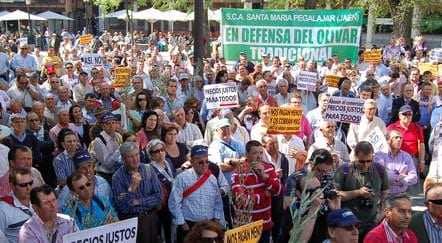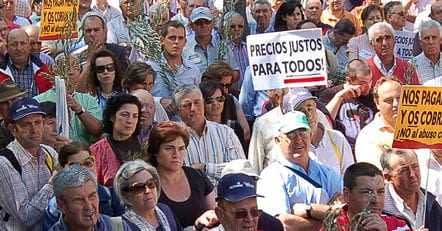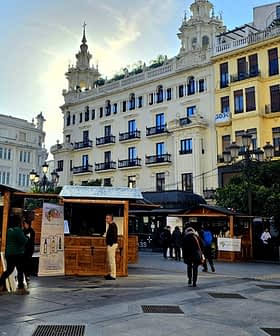
With a decision imminent from Brussels on providing private storage aid for Spain’s struggling olive oil sector, the head of the country’s competition authority has poured cold water on the measure, calling it potentially anti-competitive. Again this week, olive oil producers took to the streets over the prolonged pricing crisis during which it has been common practice to sell olive oil for less than production costs.
The producers have support from Minister of Environment, Rural and Marine Affairs Rosa Aguilar. She remains outwardly optimistic that European Commissioner for Agriculture Dacian Cioloş will soon give the nod to the aid, which would enable producers to receive payments for keeping olive oil in long-term storage containers, withholding it from the market until pricing conditions improve.
She was openly disappointed – and producers indignant — that the measure was not approved by a meeting of the EC Management Committee for Oils and Fats held on Wednesday. But Cioloş – who has said several times in recent months that Spain did not meet the aid criteria – told the press the following day that the committee did not have authority to decide the issue. He said he would closely examine new material provided by Aguilar in support of the aid and himself “provide a fairly fast response, in the next few days.”

A day later, Spain’s National Competition Commission president Luis Berenguer waded in, saying he understood why the EU had not opened its pockets, “because it could be a breach of competition rules.” Berenguer said that the sector’s problems lay with the imbalance existing between Spain’s powerful distributors — a handful of brokers that move the world’s largest olive oil supply — and the “atomized” state of those on the production side. Agricultural unions were wrong to think that they could “solve the problem with anti-competitive measures.” Any collective agreement to adopt measures designed to drive up prices also implied an agreement to influence the operation of the market, which would breach competition rules, he said.
Spain’s proposal is for private storage aid to be introduced for eight months and for a volume of about 200,000 tons of olive oil. Relevant producers would receive €1.30 ($1.87) per ton/day during this time. Agricultural association Asaja estimates the measure would cost the EC €13m ($18.7m) but have a flow-on value of €300m ($433m) for the Spanish olive oil sector. Spain already has 125,000 tons of olive oil in storage.

Meanwhile, the EC announced this week that it was claiming back a total of €530m ($765m) in agricultural policy funds unduly spent by member states — of which Spain is being slugged for about a fifth. The vast proportion of the country’s share — €70.96m ($102m) – is linked to irregularities in payments for harvests from 2003-06.Specifically for “incorrect technical tolerances applied, deficiencies in the checks on yields and incorrect application of penalties for delays in submitting crop declarations with regard to olive oil.”
Member states are responsible for managing most of these CAP funds, including verifying farmer’s claims for direct payments. The EC carries out regular audits and can claw back funds in arrears if the states can’t prove the funds were spent properly.








